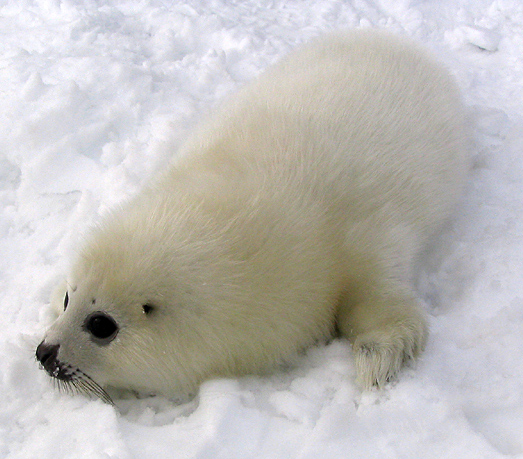The WTO has upheld the European Union’s ban on seal products under the trade agreements’ “public morality” clause, agreeing that the EU’s citizens find the killing and skinning methods used by Canadian seal hunters morally reprehensible.
The “EU Seal Regime” came into effect in 2010 and involves a ban on products derived from seals, including meat, oils, and skins. This ban was subject to several exceptions. Two important exceptions relate to products from seals hunted by Inuit or indigenous communities (IC condition), and from seal hunts conducted for marine resource management (MRM condition). [1]
Canada and Norway appealed the EU’s ban to the WTO, claiming that the Seal Regime violated the EU’s various obligations under the GATT 1994 and the TBT agreement.[2]
In its defense, the EU asserted that the measure was fully consistent with its WTO obligations, and as it was aimed at addressing public moral concerns regarding the welfare of seals, it fell under the trade agreements’ exception in this regard. In essence, the European Union asserted that seal hunting was inherently inhumane and raised moral concerns especially when hunting is conducted for commercial purposes. Further, the profit-oriented nature of the hunt increases the risk that seals may be killed inhumanely. The European Union took the position that a humane killing method cannot be applied effectively and consistently in the circumstances of to commercial seal hunts, which constituted the majority of seal hunts in Canada and Norway.[3]
Ultimately, while the panel found that the ban was discriminatory in that it did not apply equally to Canadian and Norwegian products due to exceptions, the ban survived under the relevant trade agreements’ “public morals clause”, which affords signatories a certain degree of discretion in defining the scope of “public morals” with respect to various values prevailing in their societies at a given time. The evidence presented indicated that the EU implemented this ban to protect the morals of its citizens by protecting them from these products, and to discourage the cruel practice of seal hunting.[4]
Canada has said that it intends to appeal the WTO’s decision prior to the expiration of the 60-day period, although certain animal welfare groups believe that it is waging a losing battle.
Critics believe that if Canada fails to succeed on its appeal of the dispute panel’s decision, the country’s commercial seal industry is essentially dead, given that the United States, Russia, Taiwan and Mexico all have bans on the importation of seal products. These bans have already caused the industry to wither perceptively in recent years.[5]
The WTO’s decision may also have wide-reaching effects on other industries. If animal welfare is a legitimate moral concern that can justify trade bans then it is possible for other industries to be challenged.[6] While the Europeans have already banned the use of barren battery chicken cages, veal crates and the practice of keeping pregnant sows in gestation crates, Canada still deems it acceptable to raise livestock in these conditions. Terry Audla, president of the Inuit Tapiriit Kanatami and critic of the WTO decision, has said in a statement to the Canadian Press, “The poultry, pork and beef industry — they’re next.”[7]
For the sake of the animals raised and slaughtered in this manner, which the Europeans have already deemed to be barbaric, we can only hope he’s correct.
Written by Tara Mesensky
This blog and the contents herein are for informational purposes only and do not constitute legal advice. Readers are advised to seek legal counsel prior to acting on any matters discussed herein. The opinions expressed are those of the author.
Citations:
[1] European Communities – Measures Prohibiting The Importation And Marketing Of Seal Products (25 November 2013) WT/DS400/R and WT/DS401/R at paras. 2.1-2.5, 7.1.
[2] Ibid at para. 7.2.
[3] Ibid at para. 7.3-7.4.
[4] Ibid at paras. 7.379- 7.383, 7.410.
[5] The Star: “WTO seal ban will have ripple effect on other animal industries: Walkom” (November 27, 2013), online. Link.
[6] The Globe and Mail: “Canada suffers setback in challenge of EU ban on seal products” (November 25, 2013), online. Link.
[7] Ibid at 6.



